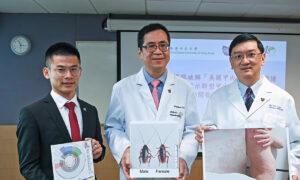The World Sleep Society designated March 17 as World Sleep Day in 2023. The Faculty of Medicine of the Chinese University of Hong Kong (CUHK) and a research team comprising representatives from 16 countries or regions found that people who habitually sleep for a shorter period have about twice the risk of developing long COVID and are at increased risk for a variety of cardiovascular diseases, compared to those who get enough sleep.
The team of researchers from CUHK’s Department of Psychiatry collaborated with researchers from the International COVID Sleep Study survey to determine how the COVID-19 pandemic and infection affected sleep, circadian rhythm, daytime performance, and general health in adults.
The survey included approximately 17,000 individuals and showed that among participants who received two doses of the COVID-19 vaccine, those who had a short sleep duration (less than six hours) had nearly twice the risk of developing long-COVID symptoms than those who slept normally, including sweating (1.73 times more), joint and muscle pain (1.67 times more), and shortness of breath (1.39 times more).
Professor Wing Yun-kwok, chairman of the Department of Psychiatry at CUHK, concluded:
“Our findings suggest short sleep duration is a causal risk factor for several cardiovascular diseases. It seems to be associated with the influence of sleep deprivation on cardiometabolic health through some common pathophysiological mechanisms, including dysfunction of the sympathetic nervous system, acceleration of metabolic diseases and atherosclerosis, increased inflammation, and cardiac dysfunction.
“Therefore, extending sleep duration among short sleepers might be a promising strategy to reduce the risk and benefit cardiovascular health. In addition, sleeping too long may reflect underlying physical and mental health problems that will need further attention and intervention. All in all, it is important to maintain a regular sleep-wake cycle with an optimal amount of sleep to improve health.”






